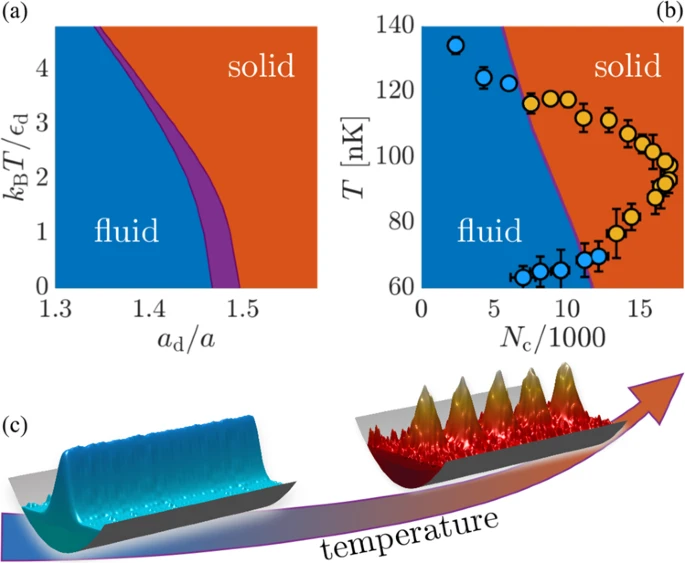Phys.org April 18, 2023
Raising the temperature of a material enhances the thermal motion of particles. Such an increase in thermal energy commonly leads to the melting of a solid into a fluid and eventually vaporizes the liquid into a gaseous phase of matter. Studying finite-temperature physics of dipolar quantum fluids, an international team of researchers (Denmark, Austria, Spain) found a surprising deviation from this general phenomenology. They described how heating a dipolar superfluid from near-zero temperatures can induce a phase transition to a supersolid state with a broken translational symmetry. They discussed the observation of this effect in experiments on ultracold dysprosium atoms. According to the researchers their work opens the door for exploring the unusual thermodynamics of dipolar quantum fluids… read more. Open Access TECHNICAL ARTICLE

Temperature-driven formation of super solidity. Credit: Nature Communications volume 14, Article number: 1868 (2023)